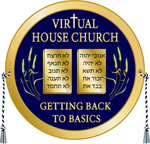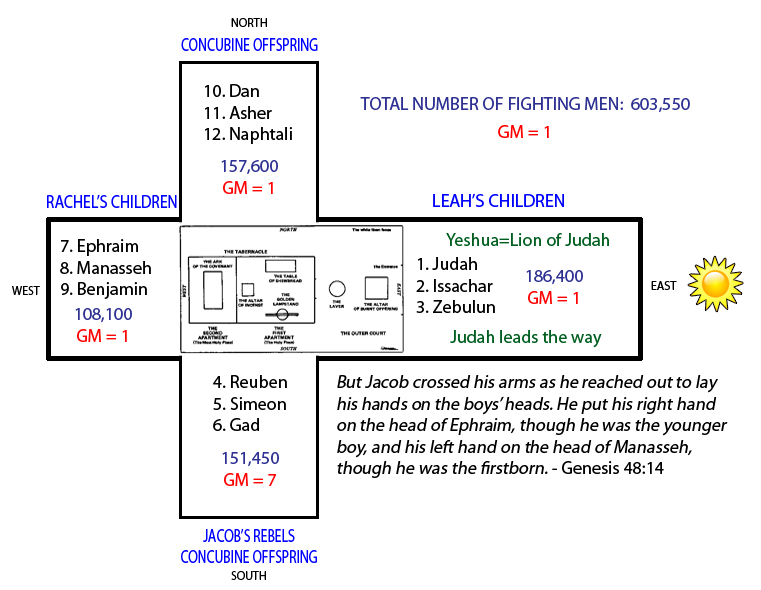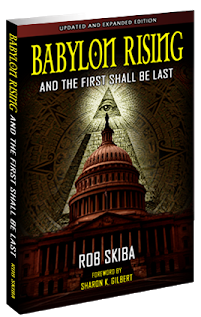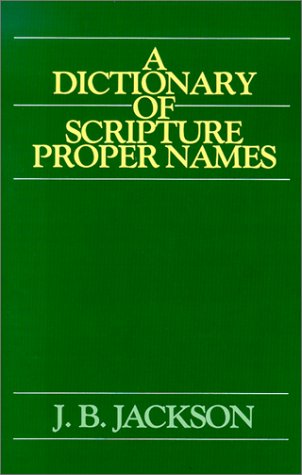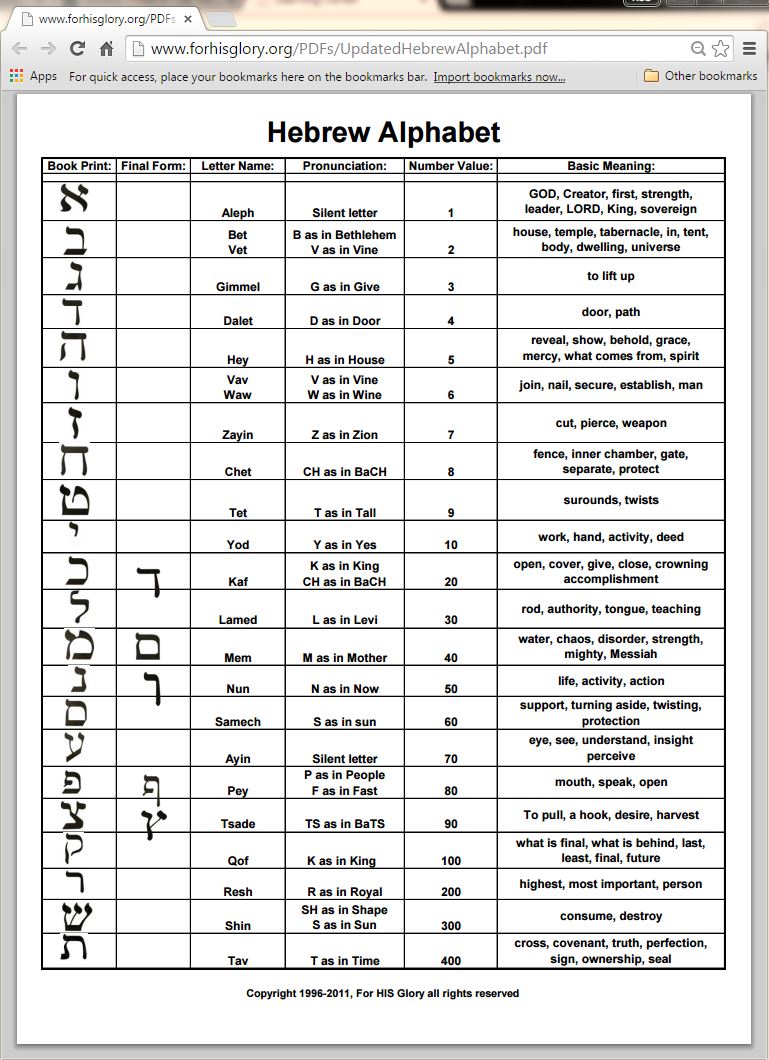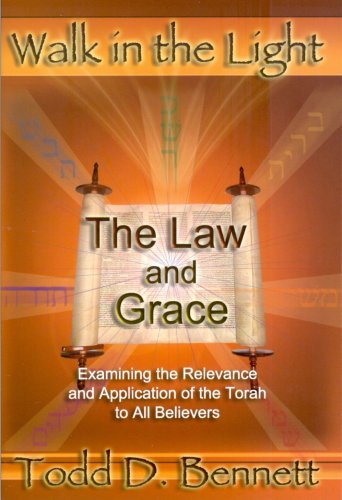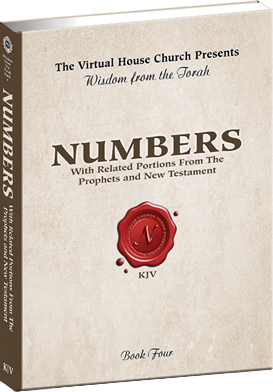
Numbers Bible Study:
Korach (Korah)
The Scriptures for this week’s study:
TORAH:
Numbers 16 – 18
PROPHETS:
1 Samuel 11:14-12:22
NEW TESTAMENT:
Luke18:35–19:28;
Romans 13:1-7;
2 Timothy 2:8-21;
Jude
QUICK SUMMARY OF THIS TORAH PORTION:
ARCHIVE OF OUR STUDIES:
2013 Broadcast:
2014 Broadcast:
2017 Broadcast:
2020 Broadcast:
2021 Broadcast:
STUDIES DONE BY OTHERS:
Ardelle’s “Your Living Waters”
Torah Commentary:
- http://yourlivingwaters.com/Numbers/Korach-Commentary-2008.pdf
- http://yourlivingwaters.com/Numbers/Korach-Commentary-2009.pdf
Workbook Discussion Questions:
How does this week’s Torah Portion Relate to the Haftarah and Brit Chadasha Portions?
What did you find most interesting about this week’s reading?
What is the general theme of this reading and how does it apply to our lives today?
Notes From This Study:
1 Corinthians 10:11
New Revised Standard Version (NRSV)
11 These things happened to them to serve as an example, and they were written down to instruct us, on whom the ends of the ages have come.
-
-
- who you are (Genesis)
- where you should be going (Exodus)
- to be Set Apart and Holy (Leviticus)
- to Trust YHWH as He guides you (Numbers)
- to OBEY HIS INSTRUCTIONS so you may Live (Deuteronomy)
-
This will not be too hard for you, because Messiah laid down His Life to make it possible for you to “Get in Covenant” with His Father! He even sent His Set Apart Spirit to give you strength to finish the Race! If you think of yourself as a “Gentile Christian” you may be suffering from Spiritual Identity Theft. The only Cure is to start at the very BEGINNING.
The Tabernacle, the People and the Cross:
The Nicolaitan Church Model:
Nicolaitans were one of the heretical sects that plagued the churches at Ephesus and at Pergamum, according to Revelation 2:6,15.
The name “Nicolaitans” is derived from the Greek word nikolaos, a compound of the wordsnikos and laos. The word nikos is the Greek word that means to conquer or to subdue. The word laos is the Greek word for the people. It is also where we get the word laity. When these two words are compounded into one, they form the name Nicolas, which literally means one who conquers and subdues the people. It seems to suggest that the Nicolaitans were somehow conquering and subduing the people. Thus, as a symbolic reference, many believe that the “teaching of the Nicolaitans” refers to domination of the people (or lording over them). Dominating the people goes against the teaching of Jesus in Matthew 20:25-28.
This being the case, I find it quite interesting that this week’s study deals with Korah and his rebellion against the leadership of Moses. While it is true that Moses was appointed by YHVH to be the leader of the people, he was not “lording over them.” Rather, he was acting as the mediator between God and man, revealing the Father’s will and giving His instructions (Torah) to the people.
Of even further interest, is the fact that the doctrine of the Nicolaitans appears to have been a form of antinomianism, which makes the fatal mistake that man can freely partake in sin (which is defined by the Bible as lawLESSness) because – supposedly – the Law of God is no longer binding. In our study, we see how the people of Israel often rebelled against Moses and the laws (instructions) he was giving to the people from YHVH.
Antinomianism comes from the Greek meaning lawless. In Christian theology it is a pejorative term for the teaching that Christians are under no obligation to obey the laws of ethics or morality. Few, if any, would explicitly call themselves “antinomian,” hence, it is usually a charge leveled by one group against an opposing group.
Antinomianism may be viewed as the polar opposite of legalism, the notion that obedience to a code of religious law is necessary for salvation. In this sense, both antinomianism and legalism are considered errant extremes. It held the truth on the gratuitous reckoning of righteousness; but supposed that a mere intellectual “belief” in this truth had a saving power.
Nicolaitans of the 2nd century seem to have continued and extended the views of the 1st century adherents, holding to the freedom of the flesh and sin, and teaching that the deeds of the flesh had no effect upon the health of the soul and consequently no relation to salvation.
Today, the doctrine is now largely taught that the gospel of Christ has made God’s law of no effect: that by “believing” we are released from the necessity of being doers of the Word. But this is the doctrine of the Nicolaitans, which Christ so unsparingly condemned in the book of Revelation.
Korah’s rebellion and the Last Days:
SHEOL (
):
Position and Form.Hebrew word of uncertain etymology (see Sheol, Critical View), synonym of “bor” (pit), “abaddon” and “shaḥat” (pit or destruction), and perhaps also of “tehom” (abyss).
—Biblical Data:It connotes the place where those that had died were believed to be congregated. Jacob, refusing to be comforted at the supposed death of Joseph, exclaims: “I shall go down to my son a mourner unto Sheol” (Gen. xxxvii. 36, Hebr.; comp. ib. xlii. 38; xliv. 29, 31). Sheol is underneath the earth (Isa. vii. 11, lvii. 9; Ezek. xxxi. 14; Ps. lxxxvi. 13; Ecclus. [Sirach] li. 6; comp. Enoch, xvii. 6, “toward the setting of the sun”); hence it is designated as  (Deut. xxxii. 22; Ps. lxxxvi. 13) or
(Deut. xxxii. 22; Ps. lxxxvi. 13) or  (Ps. lxxxviii. 7; Lam. iii. 55; Ezek. xxvi. 20, xxxii. 24). It is very deep (Prov. ix. 18; Isa. lvii. 9); and it marks the point at the greatest possible distance from heaven (Job xi. 8; Amos ix. 2; Ps. cxxxix. 8). The dead descend or are made to go down into it; the revived ascend or are brought and lifted up from it (I Sam. ii. 6; Job vii. 9; Ps. xxx. 4; Isa. xiv. 11, 15). Sometimes the living are hurled into Sheol before they would naturally have been claimed by it (Prov. i. 12; Num. xvi. 33; Ps. lv. 16, lxiii. 10), in which cases the earth is described as “opening her mouth” (Num. xvi. 30). Sheol is spoken of as a land (Job x. 21, 22); but ordinarily it is a place with gates (ib. xvii. 16, xxxviii. 17; Isa. xxxviii. 10; Ps. ix. 14), and seems to have been viewed as divided into compartments (Prov. vii. 27), with “farthest corners” (Isa. xiv. 15; Ezek. xxxii. 23, Hebr.; R. V. “uttermost parts of the pit”), one beneath the other (see Jew. Encyc. v. 217, s. v. Eschatology). Here the dead meet (Ezek. xxxii.; Isa. xiv.; Job xxx. 23) without distinction of rank or condition—the rich and the poor, the pious and the wicked, the old and the young, the master and the slave—if the description in Job iii. refers, as most likely it does, to Sheol. The dead continue after a fashion their earthly life. Jacob would mourn there (Gen. xxxvii. 35, xlii. 38); David abides there in peace (I Kings ii. 6); the warriors have their weapons with them (Ezek. xxxii. 27), yet they are mere shadows (“rephaim”; Isa. xiv. 9, xxvi. 14; Ps. lxxxviii. 5, A. V. “a man that hath no strength”). The dead merely exist without knowledge or feeling (Job xiv. 13; Eccl. ix. 5). Silence reigns supreme; and oblivion is the lot of them that enter therein (Ps. lxxxviii. 13, xciv. 17; Eccl. ix. 10). Hence it is known also as “Dumah,” the abode of silence (Ps. vi. 6, xxx. 10, xciv. 17, cxv. 17); and there God is not praised (ib. cxv. 17; Isa. xxxviii. 15). Still, on certain extraordinary occasions the dwellers in Sheol are credited with the gift of making knowntheir feelings of rejoicing at the downfall of the enemy (Isa. xiv. 9, 10). Sleep is their usual lot (Jer. li. 39; Isa. xxvi. 14; Job xiv. 12). Sheol is a horrible, dreary, dark, disorderly land (Job x. 21, 22); yet it is the appointed house for all the living (ib. xxx. 23). Return from Sheol is not expected (II Sam. xii. 23; Job vii. 9, 10; x. 21; xiv. 7 et seq.; xvi. 22; Ecclus. [Sirach] xxxviii. 21); it is described as man’s eternal house (Eccl. xii. 5). It is “dust” (Ps. xxx. 10; hence in the Shemoneh ‘Esreh, in benediction No. ii., the dead are described as “sleepers in the dust”).
(Ps. lxxxviii. 7; Lam. iii. 55; Ezek. xxvi. 20, xxxii. 24). It is very deep (Prov. ix. 18; Isa. lvii. 9); and it marks the point at the greatest possible distance from heaven (Job xi. 8; Amos ix. 2; Ps. cxxxix. 8). The dead descend or are made to go down into it; the revived ascend or are brought and lifted up from it (I Sam. ii. 6; Job vii. 9; Ps. xxx. 4; Isa. xiv. 11, 15). Sometimes the living are hurled into Sheol before they would naturally have been claimed by it (Prov. i. 12; Num. xvi. 33; Ps. lv. 16, lxiii. 10), in which cases the earth is described as “opening her mouth” (Num. xvi. 30). Sheol is spoken of as a land (Job x. 21, 22); but ordinarily it is a place with gates (ib. xvii. 16, xxxviii. 17; Isa. xxxviii. 10; Ps. ix. 14), and seems to have been viewed as divided into compartments (Prov. vii. 27), with “farthest corners” (Isa. xiv. 15; Ezek. xxxii. 23, Hebr.; R. V. “uttermost parts of the pit”), one beneath the other (see Jew. Encyc. v. 217, s. v. Eschatology). Here the dead meet (Ezek. xxxii.; Isa. xiv.; Job xxx. 23) without distinction of rank or condition—the rich and the poor, the pious and the wicked, the old and the young, the master and the slave—if the description in Job iii. refers, as most likely it does, to Sheol. The dead continue after a fashion their earthly life. Jacob would mourn there (Gen. xxxvii. 35, xlii. 38); David abides there in peace (I Kings ii. 6); the warriors have their weapons with them (Ezek. xxxii. 27), yet they are mere shadows (“rephaim”; Isa. xiv. 9, xxvi. 14; Ps. lxxxviii. 5, A. V. “a man that hath no strength”). The dead merely exist without knowledge or feeling (Job xiv. 13; Eccl. ix. 5). Silence reigns supreme; and oblivion is the lot of them that enter therein (Ps. lxxxviii. 13, xciv. 17; Eccl. ix. 10). Hence it is known also as “Dumah,” the abode of silence (Ps. vi. 6, xxx. 10, xciv. 17, cxv. 17); and there God is not praised (ib. cxv. 17; Isa. xxxviii. 15). Still, on certain extraordinary occasions the dwellers in Sheol are credited with the gift of making knowntheir feelings of rejoicing at the downfall of the enemy (Isa. xiv. 9, 10). Sleep is their usual lot (Jer. li. 39; Isa. xxvi. 14; Job xiv. 12). Sheol is a horrible, dreary, dark, disorderly land (Job x. 21, 22); yet it is the appointed house for all the living (ib. xxx. 23). Return from Sheol is not expected (II Sam. xii. 23; Job vii. 9, 10; x. 21; xiv. 7 et seq.; xvi. 22; Ecclus. [Sirach] xxxviii. 21); it is described as man’s eternal house (Eccl. xii. 5). It is “dust” (Ps. xxx. 10; hence in the Shemoneh ‘Esreh, in benediction No. ii., the dead are described as “sleepers in the dust”).
God Its Ruler:God’s rulership over it is recognized (Amos ix. 2; Hos. xiii. 14; Deut. xxxii. 22; I Sam. ii. 6 [Isa. vii. 11?]; Prov. xv. 11). Hence He has the power to save the pious therefrom (Ps. xvi. 10, xlix. 16, the text of which latter passage, however, is recognized as corrupt). Yet Sheol is never satiated (Prov. xxx. 20); she “makes wide her soul,” i.e., increases her desire (Isa. v. 14) and capacity. In these passages Sheol is personified; it is described also as a pasture for sheep with death as the shepherd (Ps. xlix. 15). From Sheol Samuel is cited by the witch of En-dor (I Sam. xxviii. 3 et seq.). As a rule Sheol will not give up its own. They are held captive with ropes. This seems to be the original idea underlying the phrase  (II Sam. xxii. 6; Ps. xviii. 6; R. V., verse 5, “the cords of Sheol”) and of the other expression,
(II Sam. xxii. 6; Ps. xviii. 6; R. V., verse 5, “the cords of Sheol”) and of the other expression,  (Ps. cxvi. 3; R. V. “and the pains of Sheol”); for they certainly imply restraint or capture. Sheol is used as a simile for “jealousy” (Cant. viii. 7).
(Ps. cxvi. 3; R. V. “and the pains of Sheol”); for they certainly imply restraint or capture. Sheol is used as a simile for “jealousy” (Cant. viii. 7).
Paul called the Antichrist the “man of sin” (2 Thess. 2:3). John defines sin as lawLESSness (1 John 3:4). Thus, the Antichrist is one who is against God (rebellion) and against His law (Torah). Those who oppose the Torah/Moses are operating under the rebellious spirit of lawlessness just as both Korah did and the Antichrist will. And in like manner, note what happens to the Antichrist and False Prophet:
Revelation 19:20 (KJV)
20 And the beast was taken, and with him the false prophet who wrought miracles in his presence, by which he deceived them that had received the mark of the beast, and them that worshiped his image. These both were cast alive into a lake of fire, burning with brimstone.
For more on Nimrod (the Antichrist) see:
For more on the Rapture:
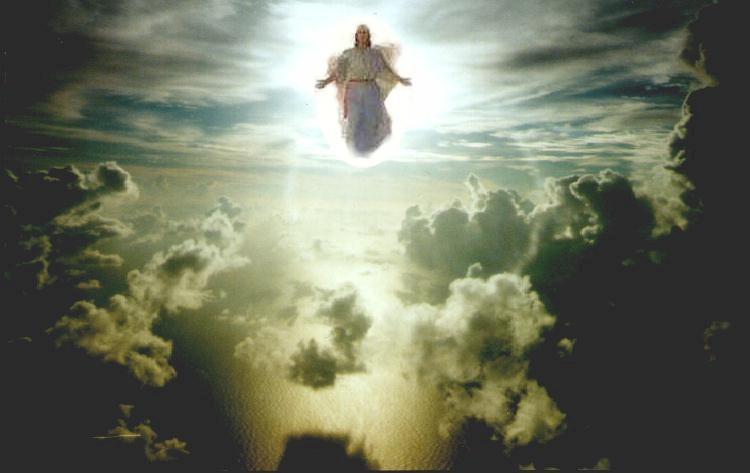
http://www.babylonrisingblog.com/RaptureRiddle2.html
Who are the Two Witnesses of Revelation 11? Consider…
Revelation 11 (NASB)
1 Then there was given me a measuring rod like a staff; and someone said, “Get up and measure the temple of God and the altar, and those who worship in it. 2 Leave out the court which is outside the temple and do not measure it, for it has been given to the nations; and they will tread under foot the holy city for forty-two months. 3 And I will grant authority to my two witnesses, and they will prophesy for twelve hundred and sixty days, clothed in sackcloth.” 4 These are the two olive trees and the two lampstands that stand before the Lord of the earth.
Zechariah 3 (NASB)
Joshua, the High Priest
1 Then he showed me Joshua the high priest standing before the angel of the Lord, and Satan standing at his right hand to accuse him. 2 The Lord said to Satan, “The Lord rebuke you, Satan! Indeed, the Lord who has chosen Jerusalem rebuke you! Is this not a brand plucked from the fire?” 3 Now Joshua was clothed with filthy garments and standing before the angel. 4 He spoke and said to those who were standing before him, saying, “Remove the filthy garments from him.” Again he said to him, “See, I have taken your iniquity away from you and will clothe you with festal robes.” 5 Then I said, “Let them put a clean turban on his head.” So they put a clean turban on his head and clothed him with garments, while the angel of the Lord was standing by.
6 And the angel of the Lord admonished Joshua, saying, 7 “Thus says the Lord of hosts, ‘If you will walk in My ways and if you will perform My service, then you will also govern My house and also have charge of My courts, and I will grant you free access among these who are standing here.
The Branch
8 Now listen, Joshua the high priest, you and your friends who are sitting in front of you—indeed they are men who are a symbol, for behold, I am going to bring in My servant the Branch. 9 For behold, the stone that I have set before Joshua; on one stone are seven eyes. Behold, I will engrave an inscription on it,’ declares the Lord of hosts, ‘and I will remove the iniquity of that land in one day. 10 ‘In that day,’ declares the Lord of hosts, ‘every one of you will invite his neighbor to sit under his vine and under his fig tree.’”
Zechariah 4 (NASB)
The Golden Lampstand and Olive Trees
1 Then the angel who was speaking with me returned and roused me, as a man who is awakened from his sleep. 2 He said to me, “What do you see?” And I said, “I see, and behold, a lampstand all of gold with its bowl on the top of it, and its seven lamps on it with seven spouts belonging to each of the lamps which are on the top of it; 3 also two olive trees by it, one on the right side of the bowl and the other on its left side.”4 Then I said to the angel who was speaking with me saying, “What are these, my lord?” 5 So the angel who was speaking with me answered and said to me, “Do you not know what these are?” And I said, “No, my lord.”6 Then he said to me, “This is the word of the Lord to Zerubbabel saying, ‘Not by might nor by power, but by My Spirit,’ says the Lord of hosts. 7 ‘What are you, O great mountain? Before Zerubbabel you will become a plain; and he will bring forth the top stone with shouts of “Grace, grace to it!”’”
8 Also the word of the Lord came to me, saying, 9 “The hands of Zerubbabel have laid the foundation of this house, and his hands will finish it. Then you will know that the Lord of hosts has sent me to you. 10 For who has despised the day of small things? But these seven will be glad when they see the plumb line in the hand of Zerubbabel—these are the eyes of the Lord which range to and fro throughout the earth.”
11 Then I said to him, “What are these two olive trees on the right of the lampstand and on its left?” 12 And I answered the second time and said to him, “What are the two olive branches which are beside the two golden pipes, which empty the golden oil from themselves?” 13 So he answered me, saying, “Do you not know what these are?” And I said, “No, my lord.” 14 Then he said, “These are the two anointed ones who are standing by the Lord of the whole earth.”
Revelation 11 (NASB)
3 And I will grant authority to my two witnesses, and they will prophesy for twelve hundred and sixty days, clothed in sackcloth.” 4 These are the two olive trees and the two lampstands that stand before the Lord of the earth.
Zech. 4:11 Then I said to him, “What are these two olive trees on the right of the lampstand and on its left?”12 And I answered the second time and said to him, “What are the two olive branches which are beside the two golden pipes, which empty the golden oil from themselves?”13 So he answered me, saying, “Do you not know what these are?” And I said, “No, my lord.”14 Then he said, “These are the two anointed ones who are standing by the Lord of the whole earth.”
Luke 16:16 The law and the prophets were until John: since that time the kingdom of God is preached, and every man presseth into it.Luke 24:44 And he said unto them, These are the words which I spake unto you, while I was yet with you, that all things must be fulfilled, which were written in the law of Moses, and in the prophets, and in the psalms, concerning me.John 1:45 Philip findeth Nathanael, and saith unto him, We have found him, of whom Moses in the law, and the prophets, did write, Jesus of Nazareth, the son of Joseph.
Yeshua (Jesus) came to fulfill all that was written by the Law and the Prophets. So as compelling as the “Law and the Prophets” argument is for the Two Witnesses, the above seems pretty cut and dry to me. And if this thesis is true, then the Zechariah 3,4 connection would represent the “priests and the kings.”
The Father’s Love Letter:
Were the Egyptians giants too?
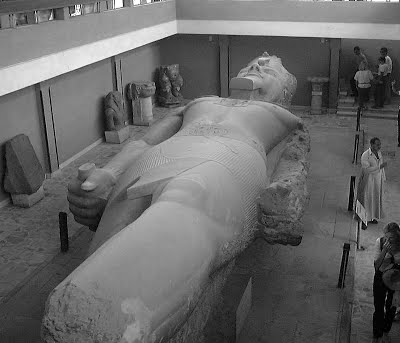
For more on the Nephilim:
Other things from dialogue during previous year’s studies:
The meanings of the names in Numbers 13:4-16:
See a Son! Listen and Remember! Listen to my noble judge. He shall be praised whole-heartedly. He will be prepared. He will bring a reward, and he will redeem. Let Him increase, for He shall be doubly fruitful to save for eternity. Son of my right hand, He will escape and be healed. Dwelling in God – His fortune, my confidant. Let Him add forgetfulness of my invader (while) on my horse. Judge my people of God. My camel is happy and hidden.Who is as God? My wrestling. My hiding. Where have you vanished? My fortune is to exalt God in my poverty.Drawing out to save; Yah is salvation!
MUST READ:
The Tribulation Protection Plan:
Exodus 34:21-24 (NLT)
21 “You have six days each week for your ordinary work, but on the seventh day you must stop working, even during the seasons of plowing and harvest.
22 “You must celebrate the Festival of Harvest with the first crop of the wheat harvest, and celebrate the Festival of the Final Harvest at the end of the harvest season. 23 Three times each year every man in Israel must appear before the Sovereign, the Lord, the God of Israel. 24 I will drive out the other nations ahead of you and expand your territory, so no one will covet and conquer your land while you appear before the Lord your God three times each year.
Leviticus 26:3-13 (NRSV)
3 If you follow my statutes and keep my commandments and observe them faithfully, 4 I will give you your rains in their season, and the land shall yield its produce, and the trees of the field shall yield their fruit.5 Your threshing shall overtake the vintage, and the vintage shall overtake the sowing; you shall eat your bread to the full, and live securely in your land. 6 And I will grant peace in the land, and you shall lie down, and no one shall make you afraid; I will remove dangerous animals from the land, and no sword shall go through your land. 7 You shall give chase to your enemies, and they shall fall before you by the sword. 8 Five of you shall give chase to a hundred, and a hundred of you shall give chase to ten thousand; your enemies shall fall before you by the sword. 9 I will look with favor upon you and make you fruitful and multiply you; and I will maintain my covenant with you. 10 You shall eat old grain long stored, and you shall have to clear out the old to make way for the new. 11 I will place my dwelling in your midst, and I shall not abhor you. 12 And I will walk among you, and will be your God, and you shall be my people. 13 I am the Lord your God who brought you out of the land of Egypt, to be their slaves no more; I have broken the bars of your yoke and made you walk erect.
Also listen to John William Galt (the voice of the movies) reading Psalm 91:
